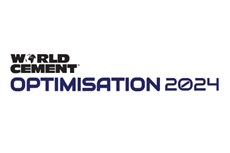Dyckerhoff subsidiary supports road rehabilitation
Published by Lucy Stewardson,
Editorial Assistant
World Cement,
Dyckerhoff has stated that the proportion of concrete road pavements on motorways is now around 30%, while it remains very low in municipal road construction. Due to the increasing load of urban traffic areas as a result of increasing traffic density and the expansion of heavy goods traffic, concrete pavements are also proving to be effective in urban areas. This is especially the case where asphalt pavements hit their performance limits. These urban areas include bus lanes, bus stations, roundabouts, and intersections.
The company has stated that concrete carriageways have a number of advantages: they are non-slip, noise-reducing, resistant to deformation, highly resistant to heavy loads, and require few structural maintenance measures. In addition, the normal service life of a concrete pavement is 30 years or longer. The company has stated that asphalt pavements often have to be renewed in half this time.
In Autumn 2018, the carriageway of the B 218 intersection at Ueffeln was renewed. This is an intersection with heavy traffic, including heavy goods vehicles. On the existing asphalt road surface, ruts, deformations, and waves repeatedly occurred at high temperatures. Therefore, the owner, the district of Osnabrück, decided on a concrete pavement, which was installed by Bestra Beton und Straßenbau GmbH, Coppenbrügge.
The Ankum plant of sibobeton Osnabrück GmbH & Co. KG supplied 230 m3 of anthracite coloured concrete to strength class C30/37 with medium strength development to the construction site approximately 11 km away. This was done in September and October 2018.
It has been noted that the concrete must withstand considerable weight and rainwater, as well as aggressive media such as deicing salts and alkali salts. Thus, it was decided to us LP concrete based on Dyckerhoff PZ Doppel road surface cement of quality CEM I 42.5 N (sd) from the Dyckerhoff cement plant in Lengerich. The addition of air-entraining agents creates tiny air spaces in this new concrete, which make it more durable and increase its resistance to freeze-thaw and freeze-thaw with deicing salt.
In order to harmonise the connection from the adjoining asphalt roadway to the concrete roadway, the road surface concrete was dyed anthracite, with black liquid paint from Ha-Be Betonchemie GmbH & Co. KG, Hameln. The uniform colouring of the concrete was achieved by using a dosing system. Thus, 22 kg of liquid paint/m3 of concrete was added to each mixer truck at the plant.
For further rehabilitation measures on the B 218, such as kerbstones, the roadway in the area of the roundabout, and several bus stops, sibobeton supplied about 700 m3 of standard concrete of strength class C30/37. Technical support at the plant and on the construction site was provided by GfBB Prüftechnik, Lengerich.
Read the article online at: https://www.worldcement.com/europe-cis/23072019/dyckerhoff-subsidiary-supports-road-rehabilitation/
You might also like
Rohrdorfer starts ethylene production from carbon dioxide
Following a test phase, production is to be scaled up to an industrial scale, thereby establishing a seamless CO2 circular economy.


